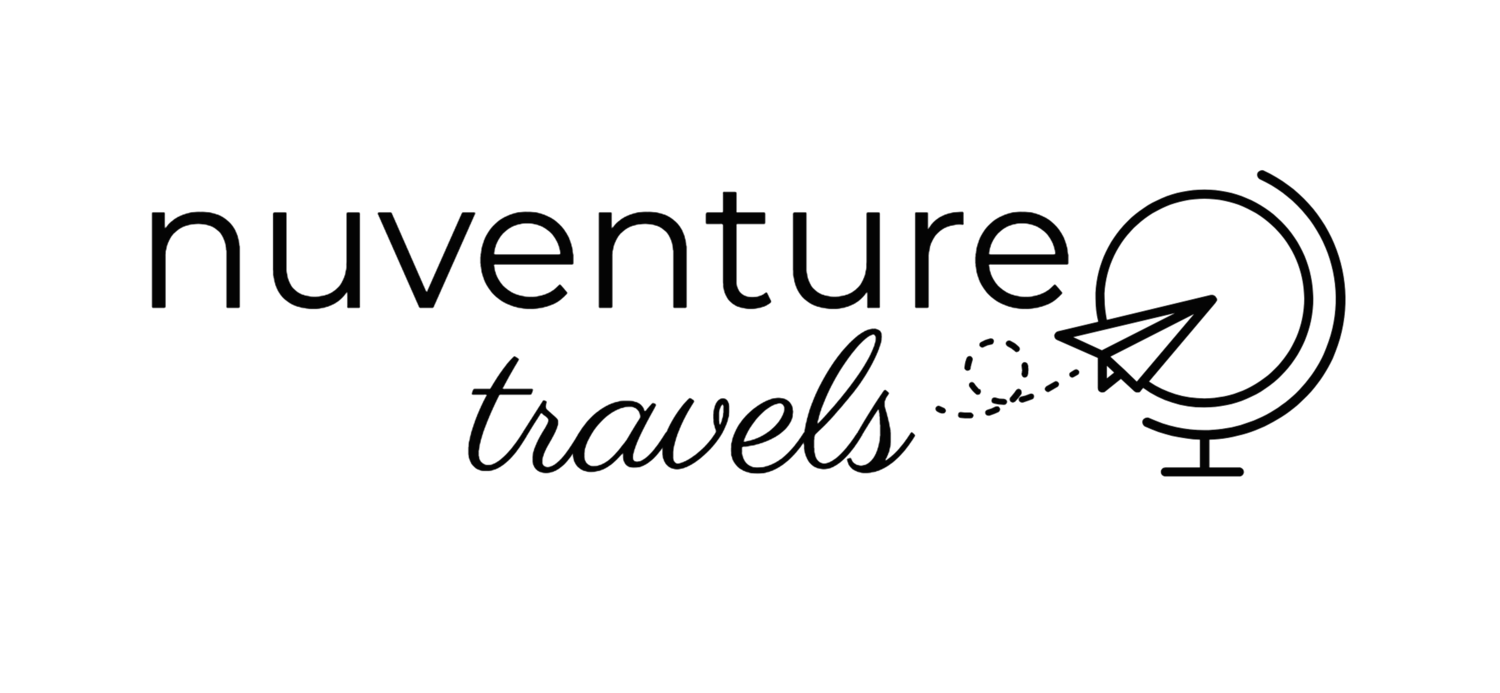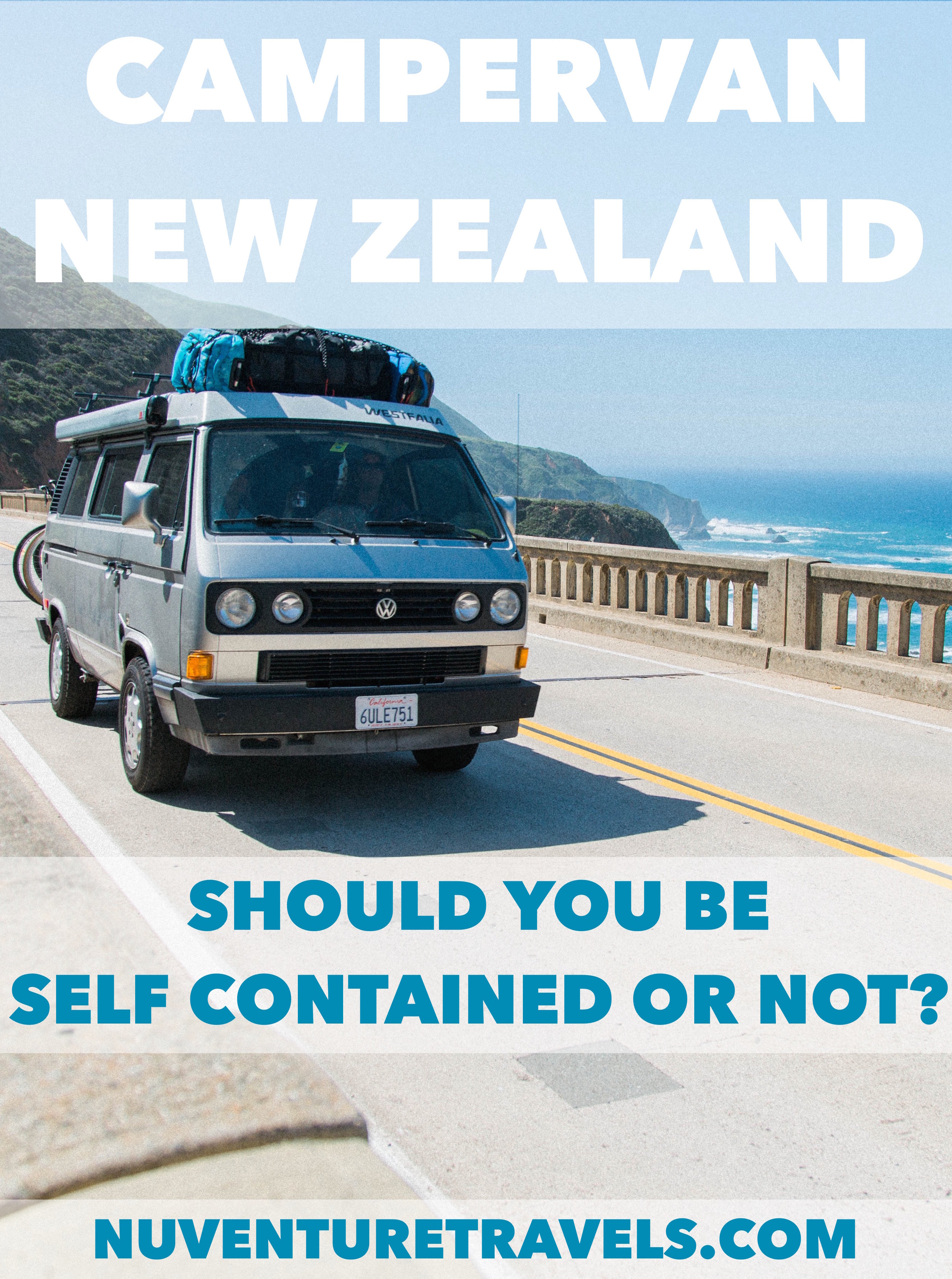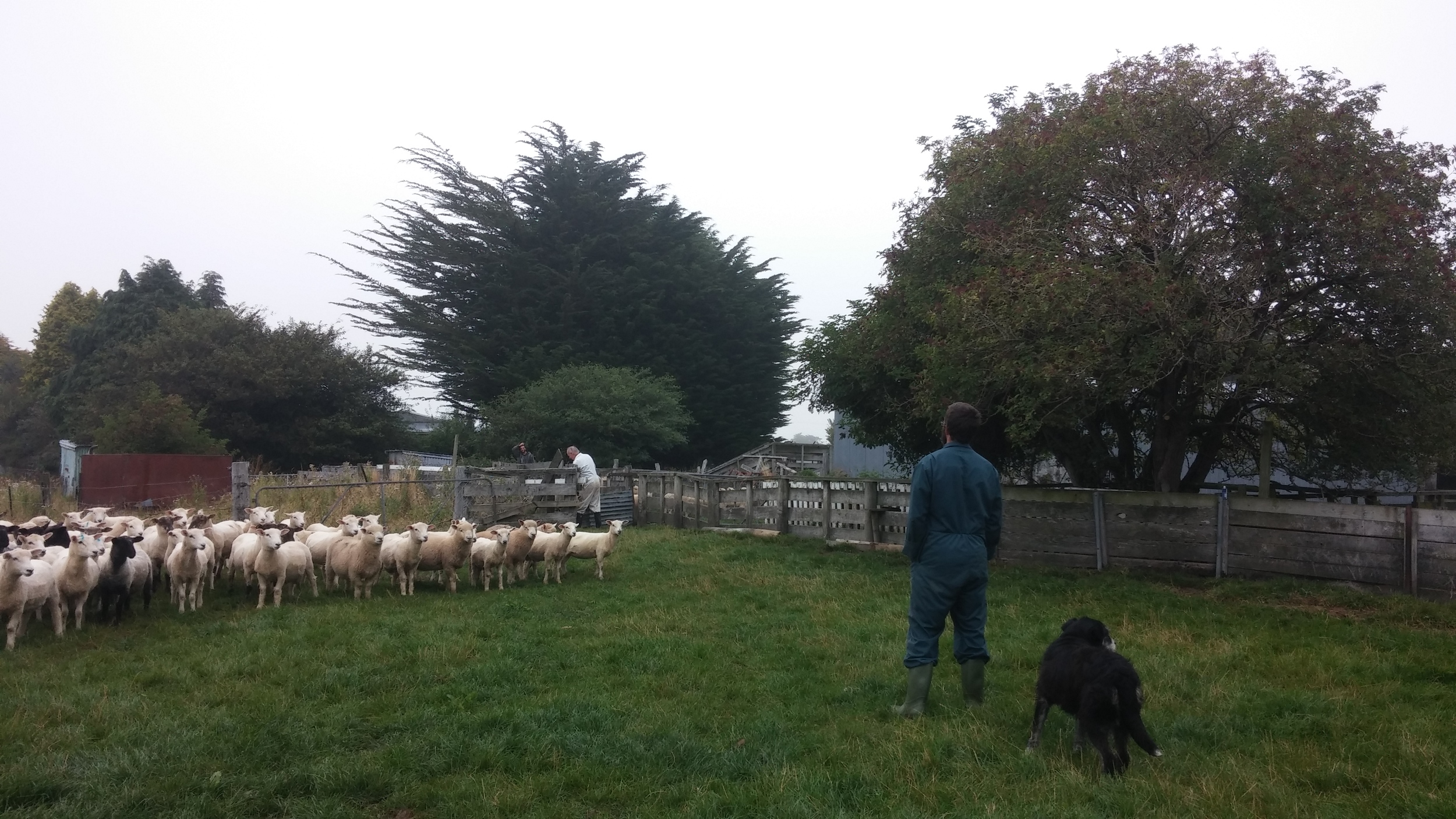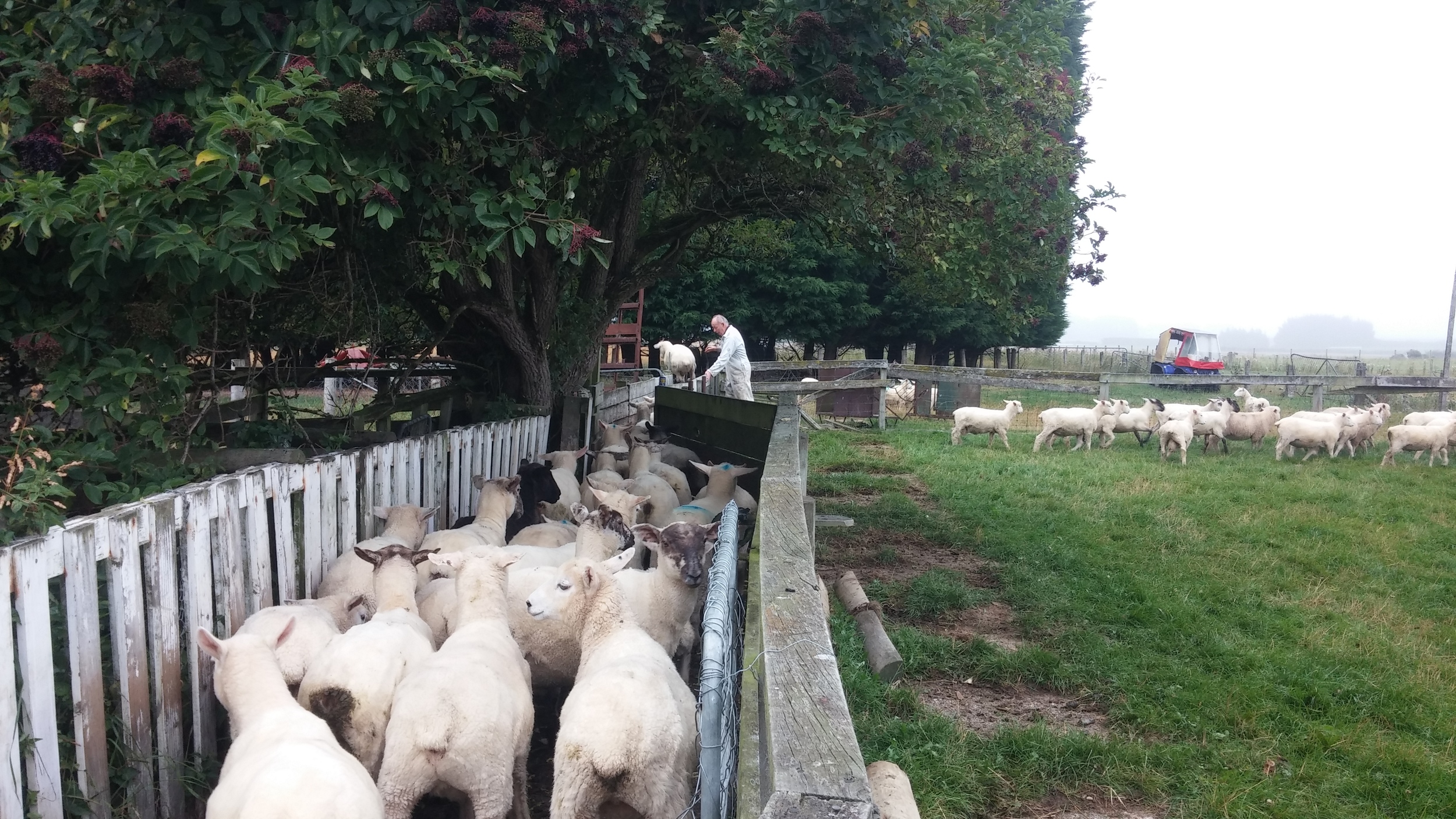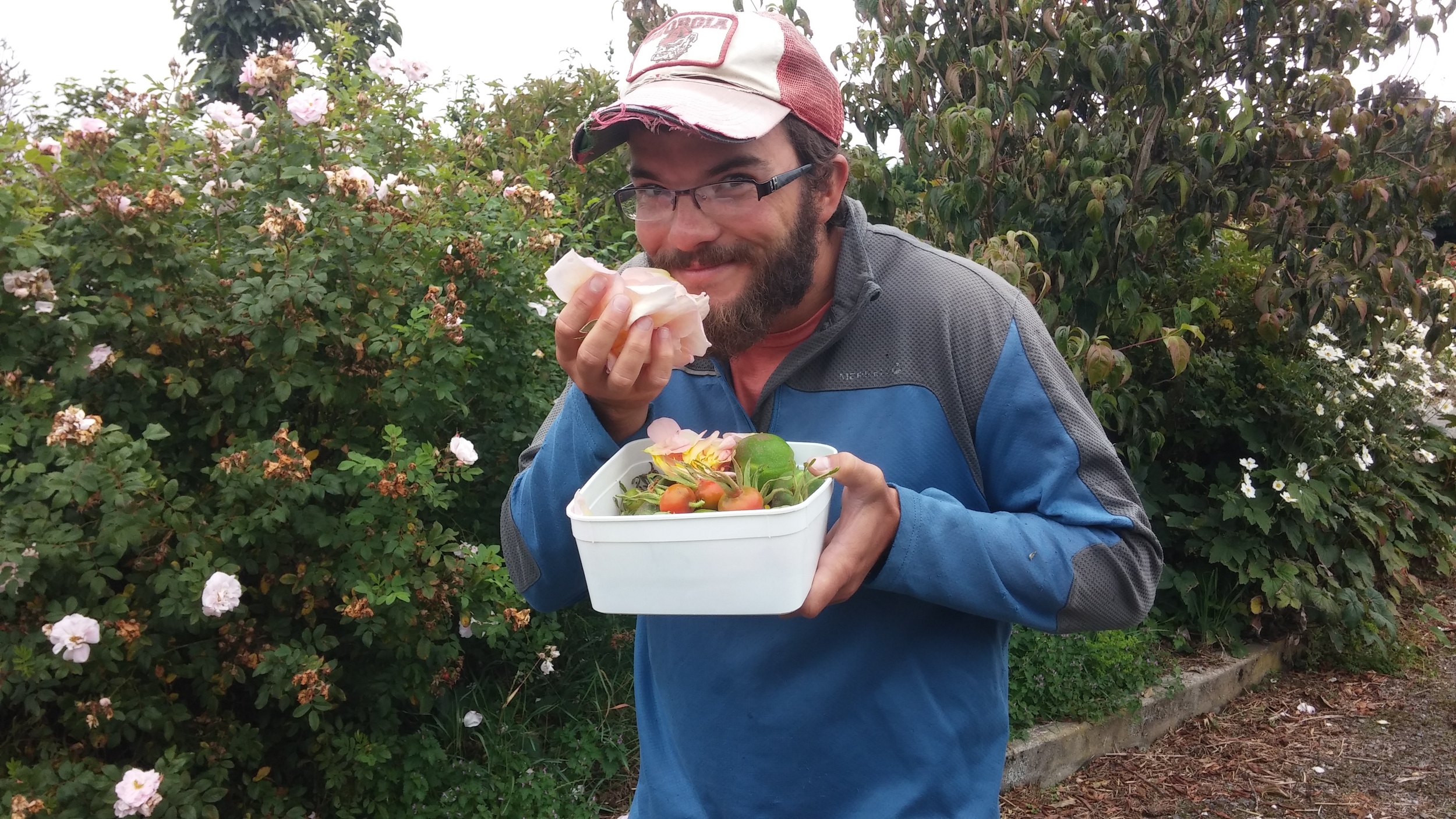Photo by Nathan Dumlao
Buying a Campervan in New Zealand:
Should Your Camper be Self-Contained, Certified Self-Contained, or Non Self-Contained?
This is a really important question to ask yourself when you're thinking about buying a campervan in New Zealand.
Your campervan’s status of being self-contained or non self- contained determines how easy it’ll be for you to find designated campsites each night.
What's the Difference?
The difference between self-contained and non self-contained is about your waste situation.
Self-contained vehicles have their own toilet and tanks to hold the waste inside (everything's self-contained). With this kind of camper, it's easy to park up and camp for the night.
Non self-contained means your vehicle is not self-sustainable and does not have a toilet or holding tank inside. This means you have to have a public toilet available at your designated campsite each night.
This was us. We bought a non self-contained minivan that was converted to a camper. We always had to find a designated campsite for non self contained vehicles each night.
Our biggest help with this: the app CamperMate! The app shows you campsites near you and categorizes them as self-contained or non self-contained campsites. It'll also show you dump sites for self-contained campers. Whatever campervan you get, download the app! It'll be your best bud in NZ!
OUR EXPERIENCE BEING NON SELF-CONTAINED
Klondyke Corner Campsite in Arthurs Pass
We campervanned NZ for five months in our non self-contained camper, Bernie. He was a minivan with a bed in the back:)
We always found a campsite, but for non self-contained campers, it's difficult to find designated campsites in the popular areas like the Coromandel Peninsula, Queenstown, Auckland, and the Franz Joseph Glacier.
In those areas, we found ourselves spending more time and gas money driving further out to campsite locations and passing many self-contained sites on the way. We had our moments of jealousy and wanting our own loo!
Other friends have campervanned NZ after us, and we always suggest to them to buy a self contained camper.
THE SELF-CONTAINED SITUATION
Why is this a big deal? New Zealand has a ton of tourists coming in and they're on a mission to protect their landscapes from tourists dropping their pants relieving themselves everywhere. Totally understandable.
So, many communities prefer tourists in self-contained campers than tourists in non self-contained ones. I totally get it.
So how do you become self-contained?
Officially, self-contained means your van is in accordance with specific standards to protect the environment and public health from bad waste disposal. Essentially, this means a self-contained campervan has a toilet, holding tank, and fresh water for doing your duty.
Self Contained Photo from Backpacker Guide
Self-contained vehicles show proof of being self-contained with this blue and white sticker on the back of the campervan.
However, folks were finding these stickers and illegally slapping them on their non self-contained vehicles to have more camping options.
To combat this, district councils have designed a new level of proof of certification where self-contained vehicles need to be inspected, approved, and show certification on the windscreen with a green label like the one shown in this picture. These vehicles are Certified Self-Contained.
Certified Self Contained Photo by CamperMate
If you're leaning toward a self-contained vehicle, make sure the vehicle is Certified Self-Contained. This way, you’ll be able to camp at any campsite in NZ. Campers with self-contained vehicles without certification need to pay close attention to signage at campsites to make sure they’re in a designated area for their vehicle. Some campsites only allow certified self-contained vehicles to camp.
Requirements to Be Certified Self-Contained
As of October 13, 2015, New Zealand Motor Caravan Association Inc. stated on its website the specific requirements a vehicle has to have to be certified self-contained.
The vehicle must have “sanitary and safe installation of the following:
Fresh water supply: 4L per person per day (i.e. minimum 12L per person)
A sink
Toilet: 1L per person per day (i.e. minimum 3L net holding tank capacity per person)
Holding tank: 4L per person per day (i.e. minimum 12L per person) and monitored if capacity is less than the fresh water tank
An evacuation hose
A sealable refuse container (with lid)."
Types of Self-Contained Vehicles
We saw all types of self-contained vehicles. There are large caravans specifically designed to be self-contained and there are minivans out there modified to be self-contained.
For normal backpacker campers, you have a higher chance of finding a utility van or pop-top that’s self-contained, than a sedan, hatchback, or minivan, simply due to the design and available interior space in the campervan.
SHOULD YOUR CAMPER BE SELF CONTAINED OR NON SELF CONTAINED?
Like we shared, when friends ask us what they should buy, we give them our guide book and always tell them to find a self-contained camper. These are more expensive, though, so it's your decision.
If you're still not sure, here's some benefits and limitations to both choices we found in our five months campervanning NZ.
SELF CONTAINED pROS & CONS
BENEFITS OF BEING SELF-CONTAINED
You’ll have more camping options, especially in popular areas of the country.
You won’t have to drive as far to find a campsite each night.
You’ll save money on petrol, since you don’t have to drive as far to find campsites.
You’ll have fewer late night arguments with your travel partner when you’re both tired and desperate to get settled at a campsite.
LIMITATIONS OF BEING SELF-CONTAINED
Self-contained vehicles are normally more expensive than non self-contained vehicles.
Most of these vehicles are big and bulky. Some campsites may be difficult to get into and navigate through.
NON SELF-CONTAINED PROS & CONS
BENEFITS OF BEING NON SELF-CONTAINED
Vehicles are normally less expensive than self-contained vehicles.
These vehicles are smaller, allowing you access down less traveled roads.
These types of vehicles allow you to blend in more like a local instead of standing out as a tourist. Non self-contained vehicles are vehicles local families and local businesses would drive; sedans, hatchbacks, minivans, and utility vans.
There’s less maintenance to worry about. With self-contained vehicles you have to worry about fixing the plumbing if anything should go wrong.
You don’t have the added worry of dumping and cleaning the holding tanks on your holiday.
LIMITATIONS OF BEING NON SELF-CONTAINED
You have less camping options than self-contained vehicles, especially in popular areas like Queenstown, Auckland, Franz Joseph Glacier, and the Coromandel.
You may find yourself spending more time and money on petrol getting to a designated non self-contained campsite each night.
Ready to Campervan New Zealand, but Not Sure How?
We've got you covered!
Get our step-by-step guide to save you money, time and stress figuring it out yourself. Let's get you on the road exploring right away.
We guide on where to buy, how to get one on a budget, what to look for when test driving, tips to negotiate the price down, what government forms to complete, how to find free and cheap campsites, and heaps more.
“Your book was soooo stinkin helpful!”
